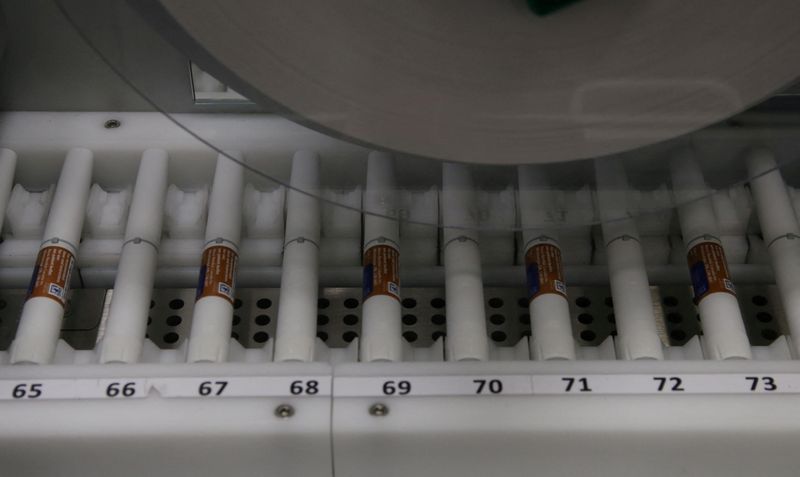By Bhanvi Satija and Eva Mathews
(Reuters) -The European Union drug regulator found no evidence that a class of diabetes and weight-loss drugs such as Novo Nordisk (CSE:NOVOb)'s hugely popular Wegovy, are linked to suicidal thoughts, it said on Friday, ending a nine-month probe.
The regulator's Pharmacovigilance Risk Assessment Committee, which monitors drugs' side effects, said that no updates were required to the treatments' product information after reviewing the available evidence.
Shares of Danish drugmaker Novo Nordisk rose more than 2% after the European Medicines Agency (EMA) released its findings. Novo said it will continue to monitor any reports of adverse drug reactions, including suicide and suicidal thoughts.
The finding comes after EMA extended in December its review into the class of weight-loss and diabetes drugs known as GLP-1 receptor agonists, to get more data from drugmakers to further investigate the issue.
The analysis started in July after Iceland's health regulator flagged three cases of patients thinking about suicide or self-harm after using Novo's drugs.
The review focused on medicines that contain either semaglutide or liraglutide, both GLP-1 targeting compounds. Liraglutide is the active ingredient in Novo's weight-loss treatment Saxenda while semaglutide is the active ingredient in Wegovy and top-selling diabetes treatment Ozempic.
The EMA analysed results from a large US study and did not find a direct association between the use of semaglutide and suicidal thoughts.
Results from another study conducted by EMA also did not support a link between GLP-1 drugs and risk of suicidal thoughts. Both the studies were based on electronic health records.
The U.S. Food and Drug Administration's preliminary review in January also found no link between GP-1 drugs and suicidal thoughts or actions.
"I hope it's reassuring to patients and prescribers that after a thorough review by two regulatory agencies ... there does not appear to be an increased risk of suicidal behavior," said Dr. Robert Kushner, professor at Northwestern University Feinberg School of Medicine.
"I don't discount when people feel a change in their emotional or mental health when they take the medication, but that needs further ... assessment by the prescriber," Kushner said.
Britain's Medicines and Healthcare products Regulatory Agency has been reviewing a possible link between GLP-1 drugs and suicidal or self-harming thoughts since July last year.
Dr. Alison Cave, the agency's chief safety officer said that the review continued and the agency would "communicate any further advice to patients and healthcare professionals as appropriate."
GLP-1 receptor agonists, originally developed to help control blood sugar in patients with diabetes in Novo's Nordisk's Ozempic and Mounjaro developed by Eli Lilly (NYSE:LLY), also slow digestion and reduce hunger.
Novo's Ozempic and Wegovy and Eli Lilly's Mounjaro have so far proved relatively safe. Their clinical trials did not show suicide risk.
But doctors are on the lookout for previously undocumented dangers as hundreds of thousands of new patients start taking these drugs to lose weight.
Heightened suicide risks have caused regulators to issue strong warnings on obesity drugs in the past, with Sanofi (EPA:SASY)'s Acomplia, which never won U.S. approval, being withdrawn in Europe in 2008 after being linked to suicidal thoughts.
PRAC had said in October that it did not find a causal link between GLP-1 drugs and thyroid cancer after a review.
